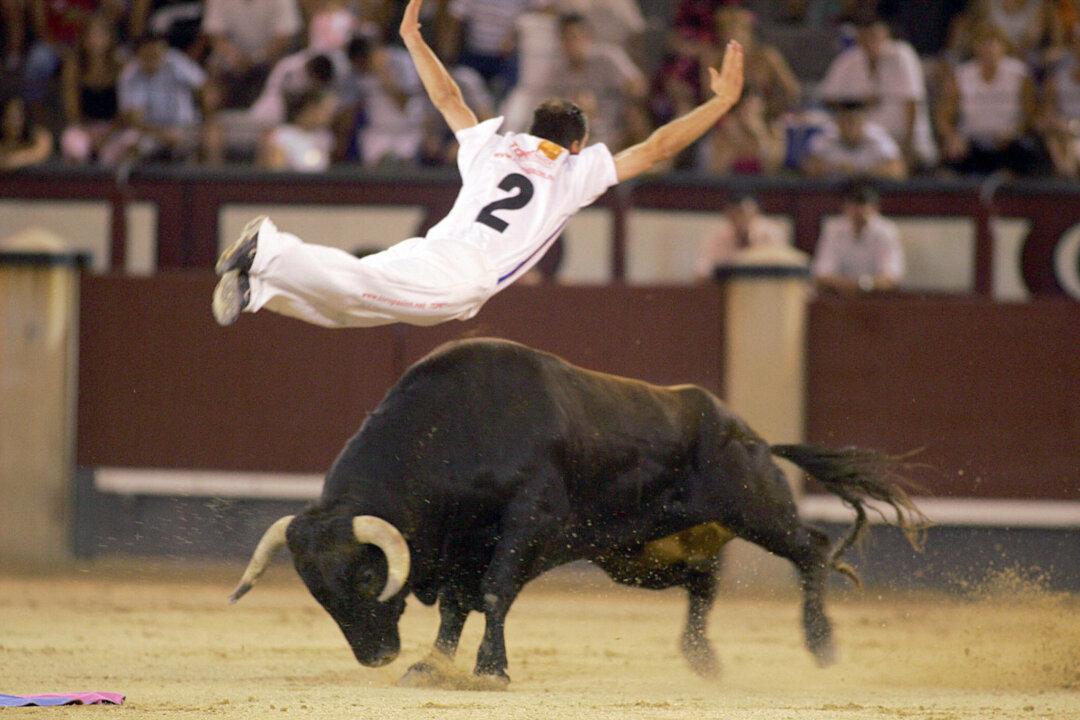A teenager has died after being gored by a bull during a spring festival in Spain.
Fran Gonzalez, 19, was the second person killed by a bull during several days of a traditional festivals, which often feature bull running and bull fighting of various traditions.





